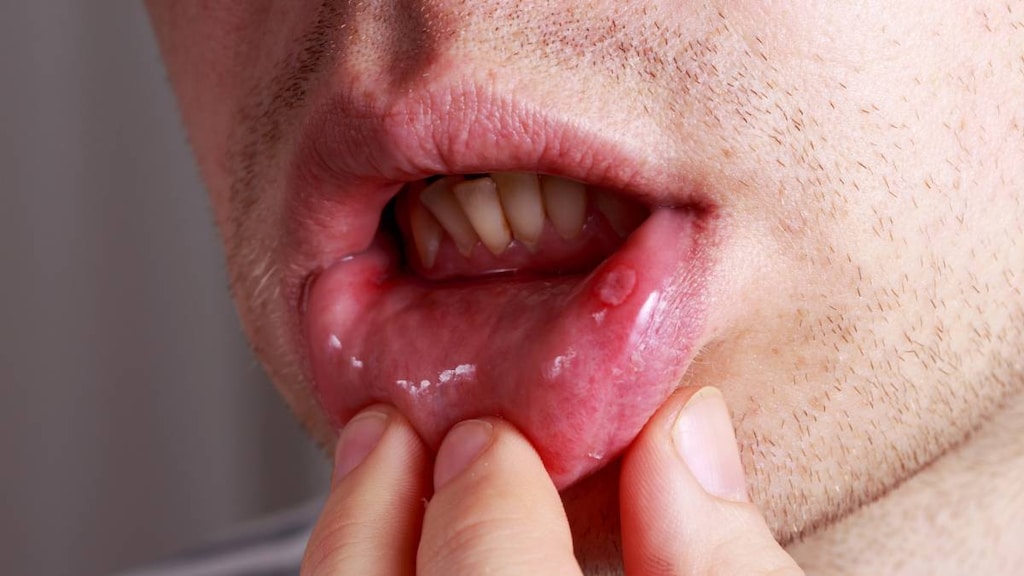
Aphthous ulcers are small, round, shallow lesions that develop on the inside of the mouth or the base of the gums. Aphthous ulcers may also be called aphthous stomatitis or canker sores.
What causes aphthous ulcers?
The exact cause of aphthous ulcers is not known although a genetic component is likely since 40% of people with aphthous ulcers have a family history of the condition. Over-reaction of the immune system is also likely to be a factor.
Possible triggers for aphthous ulcers include:
- Food sensitivities (eg, to chocolate, strawberries, cheese, spicy or acidic foods)
- Hormonal changes
- Lack of sleep
- Minor injury or trauma to the mouth (such as from a loose wire from orthodontics)
- Not smoking or having recently quit smoking
- Nutritional deficiencies
- Oral products containing sodium lauryl sulfate
- Stress.
People with certain health conditions, such as Celiac disease, inflammatory bowel disease, Bechet’s disease, and HIV are also more at risk of aphthous ulcers.
What are the symptoms of aphthous ulcers?
There are three types of aphthous ulcers, classified as minor, major or herpetiform. Typical symptoms of minor aphthous ulcers include:
- A small round or oval lesion with a yellow or white center and a red border
- Located inside the mouth – either on or under the tongue, inside the cheeks or lips, at the base of the gums, or on the roof of your mouth
- Tingling in the area may be noticed a day or two before the sores appear
- Slightly painful
- Usually, heal within one to two weeks.
Major aphthous ulcers are usually larger and deeper and can be extremely painful. They may take up to six weeks to heal and may scar.
Herpetiform aphthous ulcers are pinpoint in size and occur in clusters of 10 to 100. These are uncommon and usually, heal without scaring within a month.
Aphthous ulcers can also affect the genitalia in males and females.
Aphthous ulcers aren’t contagious. Lesions or sores that occur on the surface of your lips or around your nose are more likely to be cold sores, which are contagious.
How are aphthous ulcers diagnosed?
See your doctor if you experience recurrent, persistent, or frequent aphthous ulcers, your ulcers are unusually large or extremely painful, you have a high fever, or you have a lot of difficulties eating or drinking.
Your doctor should be able to identify your sore as an aphthous ulcer just with a visual examination, although may request other tests to check for health problems, especially if your sores are severe or ongoing.
Recurrent aphthous ulcers may be a sign of a more serious underlying health problem.
How are aphthous ulcers treated?
Most minor aphthous ulcers will heal by themselves in a week or two without treatment. Treatment aims to suppress symptoms such as pain since the underlying cause of aphthous ulcers is not known. Treatment may include:
- Mouth rinses that contain dexamethasone or lidocaine to reduce pain
- Topical benzocaine, fluocinonide, or hydrogen peroxide
- Oral corticosteroids for extremely painful sores
- Cauterization.
Nutritional supplements such as folic acid, vitamin B6 or B12, or zinc may help reduce recurrence.




